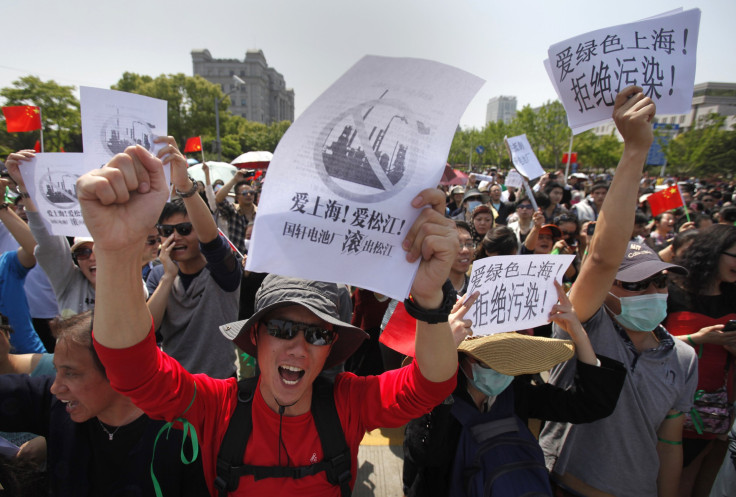38.1% Of Chinese Are Conservative Compared To Just 8% Liberal

A recent survey finds Chinese citizens have become more conservative regarding democracy, compared with results from a similar study carried out in 1989.
The study, titled “What kind of democracy do Chinese people want,” was published by Zhang Mingshu, a researcher for the Chinese Academy of Social Sciences’ Institute of Political Science.
If the Chinese population is divided into three camps according to political beliefs, 38.1 percent would fall into the “left,” a term traditionally referring to citizens with socialist or communist leanings, which in China’s case also means those more "patriotic" and "conservative" (opposite the U.S. definition of left), according to the study.

By contrast, only 8 percent lean more to the "right," which in Chinese terms supports a more democratic, "liberal" government. The rest, 51.5 percent, fall into the middle, leaning neither left nor right.
“I was surprised by the results,” the author of the study, Zhang, said in an interview with Southern Weekend, a weekly Guangzhou newspaper. “But if you observed outside the intellectual circle, on the streets in your hometown, you would find the ratio to be accurate.”
This is a surprising change compared to the first time Zhang carried out a study on China’s political attitudes, in 1988-1989, right around the time of the Tiananmen Square incident.
“In 1988, those surveyed were more Westernized. Economic reforms had been recently implemented, and society embraced those Western ideas,” Zhang said regarding the difference between the study results.
“What we intellectuals consider outdated, leftist ideologies actually have a big impact in our society,” Zhang said. “The study results mean many people follow mainstream media -- which in China is controlled by the state.
Intellectuals are more likely to lean toward the Chinese definition of right, but this does not mean China’s intellectuals are more likely to champion democratic causes.
“Our mainstream intellectuals today are more concerned with their own welfare. Whenever an intellectual’s behavior crosses the line, his welfare becomes immediately damaged, he can only meekly cooperate,” Zhang said.
The study also found the 1960s was a turning point for China. People born after 1960 are more opinionated in terms of political ideology, but unlike their counterparts in the West, this group in China is less inclined to participate in political activities. Zhang considers this a result of China’s abstract, slogan-focused educational system.
“Our young people are open to new ideas but are less willing to contribute to put these ideas into practice,” Zhang said.
Zhang’s survey randomly chose four cities of varying sizes, surveyed 1,750 people and controlled for age, gender, education level and other factors.
© Copyright IBTimes 2024. All rights reserved.





















